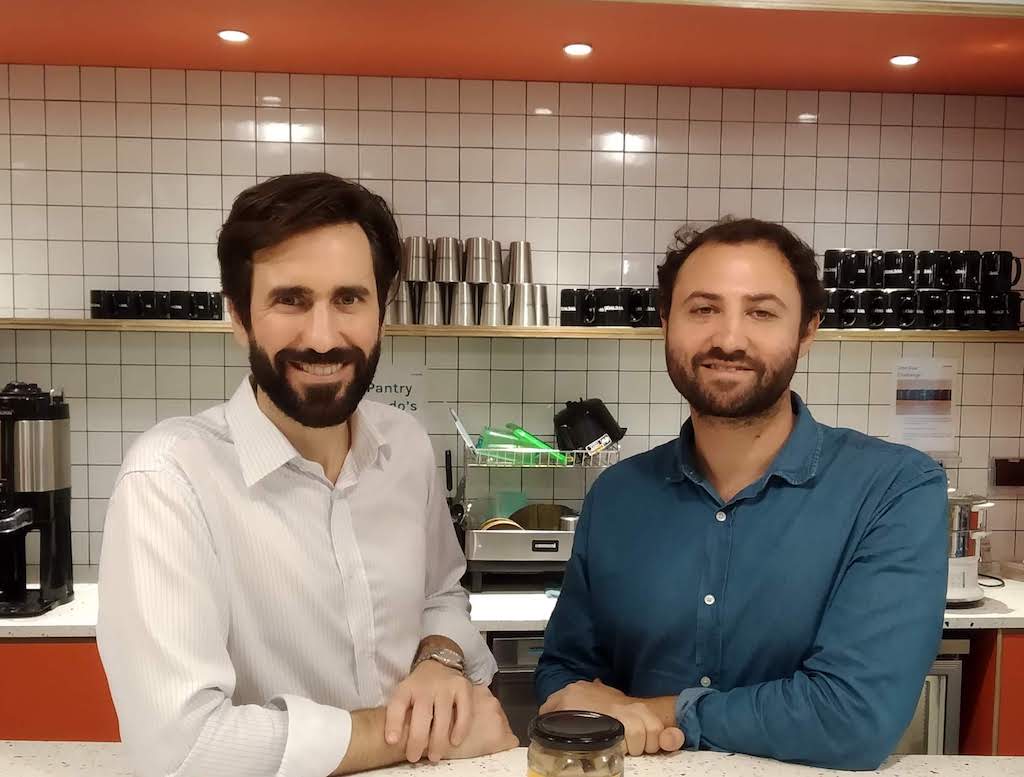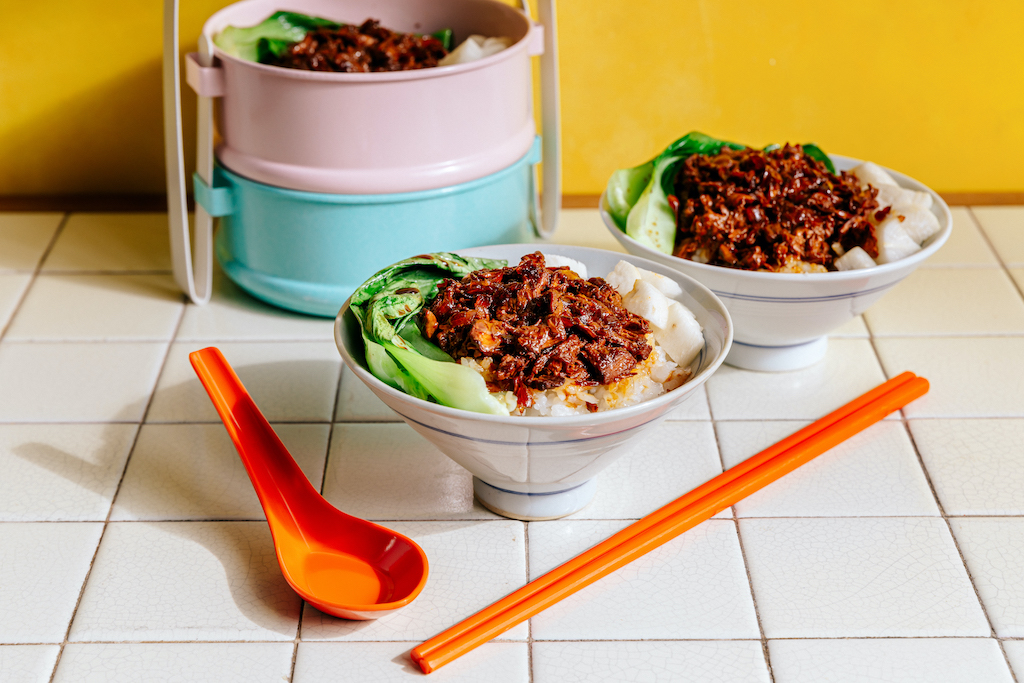4 Mins Read
Singapore-based whole foods plant-based meat brand, Karana, has announced today (July 9) that it has closed US$1.7 million in a seed funding round. Using regionally abundant organic young jackfruit, the startup creates less processed vegan meat alternatives, and is planning to debut its pork analogue commerically before the end of the year year.
Participating in the seed funding round were CEO of Monde Nissin Corp Henry Soesanto, Temasek, Tyson Foods and Bühler Group-backed alternative protein fund Big Idea Ventures, Japan-Singapore fund Germi8 and Hong Kong-based angel investors Kevin Poon and Gerald Li.
Founded by Blair Crichton and Dan Riegler, Karana creates healthy plant-based meat alternatives using responsibly sourced young jackfruit, a fruit native to and abundant in Asia. Unlike other well-known vegan meat brands on the market, whose labels usually contain a long lists of ingredients and preservatives, Karana uses minimal processing to optimise and enhance jackfruit into a meat-like ingredient that’s easy to cook and prepare.

While many plant-based alternatives on the market are produced at a fraction of the carbon footprint of conventionally farmed meat, the use of jackfruit in particular offers additional environmental and social benefits. Not only is jackfruit a highly efficient crop that requires little water to produce high yields, making it friendly to smallholder farmers in the region and climate-resilient, it is also grown intercropped, which promotes flora and fauna biodiversity in surrounding areas.
Karana plans to use the funds to launch its first range of vegan meats and dim sum products this year in Singapore via foodservice, with its very first product being a shredded or minced pork alternative, which is perfect for use in Asian dishes such as Cantonese char siu, a personal craving for co-founder Blair Crichton.
“Having grown up in Hong Kong, selfishly I really wanted great plant based options of the dim sum I love,” Crichton told Green Queen. “Working in the plant based space in the U.S., I saw the opportunity to create products tailored for the Asian market – and my own cravings.”
Retail launch of its products, on the other hand, is planned for early 2021. It will also use the capital to accelerate its research and development and expand its food tech team.

The announcement comes at a time when food safety, security and supply chain issues have never been more crucial amid the coronavirus pandemic. “The last few months have been challenging but we’re really proud of the progress we’ve made and there has never been a more urgent need for better food choices,” co-founder Dan Riegler told Green Queen.
Multiple plant-based and cultivated food tech investments have been announced in recent weeks, as capital continues to flow into the alternative protein industry amid the crisis for traditional animal agriculture companies, whose dangers and vulnerabilities have been exposed by the pandemic.
In just the first quarter of 2020 alone, plant-based and cell-based protein companies in the United States together have raised a total of US$930 million in investment, according to a Good Food Institute report.
Recent data has also revealed that consumers are now choosing plant-based options more than ever before, with surveys all over the world recording record levels of consumer interest and willingness to shift to vegan meat and the latest United Nations figures showing that per capita meat consumption is dropping at a rate unseen in decades.

“We are definitely seeing people more concerned not only with the health element of what they’re eating, but also transparency in supply chains and the environmental and social impact of food production,” Riegler told Green Queen.
But the co-founder believes that while heightened consumer awareness is good news, there remains great challenges ahead to drive the much-needed transformation away from animal livestock farming, which scientists at the UNEP have listed as a key driver of the rise of zoonotic diseases in addition to the climate crisis.
“This is a huge moment for plant based food but there is still plenty of room for innovation and more biodiverse ingredients.”
All images courtesy of Karana.




